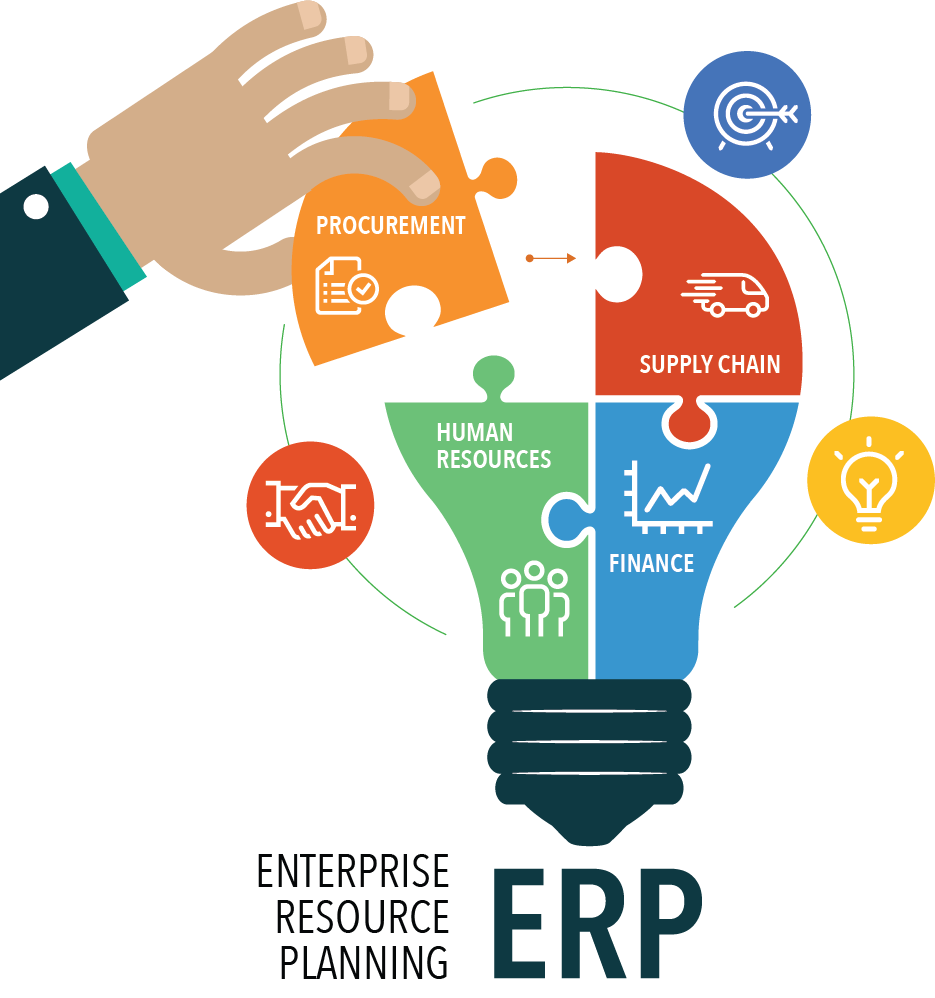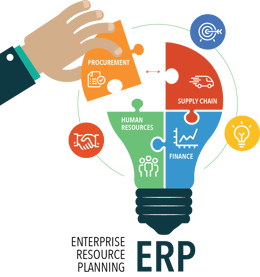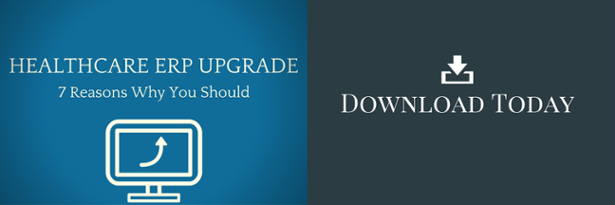Healthcare ERP | 7 Reasons Why You Should Upgrade (Preview)

 In this post, we discuss common reasons to upgrade your healthcare ERP system (to download the entire white paper, see below).
In this post, we discuss common reasons to upgrade your healthcare ERP system (to download the entire white paper, see below).
After years of neglecting enterprise resource planning (ERP) systems as they implemented electronic health record (EHR) systems, healthcare organizations are beginning to reinvest in ERP systems for their hospitals.
Though hospitals are not done meeting federally mandated Meaningful Use criteria, they are gradually shifting their focus from clinical health IT needs to the improvement of business operations.
ERP has traditionally received a large portion of a hospital’s health IT budget. If they are to remain operationally sound, organizations must continue to increase their investments. An updated ERP system can improve an organization’s ability to focus on the care of their patients, as well as help it to compete in the marketplace.
Along with bed management and financial modeling applications, ERP is among the three operational applications with the most potential for accelerated investment by hospitals, according to a HIMSS Analytics report released in April 2014. The report profiled 26 operational applications and their use across more than 5,000 U.S. hospitals.
“The first-time sales outlook for these three operational applications is grounded in the industry’s ongoing efforts to create a cost-efficient and clinically effective environment,”
– Lorren Pettit, vice president of market research for HIMSS Analytics, in a news release announcing the report.
Hospitals stand to make tremendous operational improvements by tapping into the advances that the primary ERP vendors made during the years in which organizations invested almost exclusively in their clinical systems. Improvements to Human Resource Management Systems (HRMS), Financial Management Solutions (FMS), and Supply Chain Management (SCM) modules will likely yield the greatest returns on investment in ERP systems for hospitals.
Future ERP investments will include system upgrades, modifications, new implementations and conversions (due to corporate consolidations). A gap analysis that assesses your existing software capabilities and compares it to the improvements that you are seeking will help you determine which ERP investments would be most beneficial for your organization.
Here are three common reasons to upgrade your ERP:
1) Improve productivity
The interconnectivity of ERP systems can be as much a curse as a blessing. Having your general ledger fed by applications as varied as payroll, benefits, and supply chain ensures that information is entered once. However, it may not be received the same way in each application, particularly if you have continuously patched your ERP system with quick fixes rather than doing comprehensive improvements.
Your ERP system will run slower if you keep customizing applications and making changes as problems arise. A payroll that should take you a few hours to run could take days if your applications do not communicate with one another as smoothly as they would as part of a comprehensive system. You may also have to spend more time checking that payroll data for accuracy.
2) Manage maintenance costs
An ERP system can be like a car, in that the longer you put off important maintenance, the more expensive it will be to fix the subsequent problem that will almost inevitably arise. If you do not properly maintain your ERP system, including periodically upgrading it, you will have a myriad of problems with the individual applications—the collective cost of which to fix will be higher because the inevitable upgrade will be harder to do, as a result of the complexity inherent with your customization. The upgrade that you deferred may also have solved some of these underlying problems, as vendors often incorporate sweeping improvements into each upgrade to solve common problems among their customers.
3) Improve security
Because ERP vendors include the latest security measures in upgrades, your systems may be vulnerable to data breaches if you have not stayed current. If you do not upgrade, protected health information (PHI) could be compromised.
With the costs of data breaches so high—in terms of potential damages to pay, public confidence lost, and bad publicity suffered—you must be proactive in protecting your data. In some situations, the security improvements gained from a system upgrade could pay for much of the cost of an upgrade.
To keep up with the latest industry expertise subscribe to the blog below.

